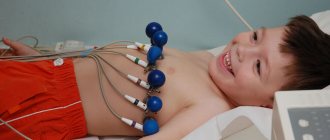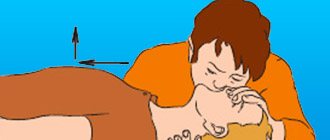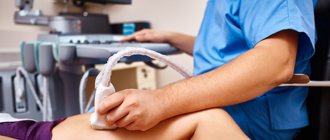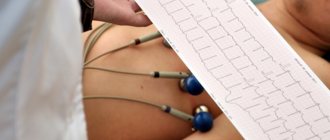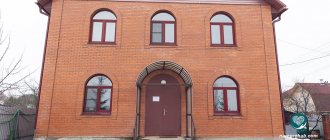The heart is a muscular organ whose main task is to ensure constant blood flow through the vessels. In other words, the heart muscle is a special pump that can work without interruption for a long time. Thanks to this, every cell in the body receives the necessary nutrients, oxygen and energy. Since the heart performs a vital function, it is protected on all sides by the sternum and ribs. The retrosternal location protects the heart muscle from almost all external influences. However, over time, disturbances in the functioning of the heart muscle may appear, which can be caused by:
- changes in the rheological properties of blood;
- depletion of the muscle fibers of the heart and the walls of blood vessels;
- disturbance of nerve conduction.
If your heart hurts, you should definitely consult a specialist, undergo a special set of examinations and individually select treatment.
Localization of pain
Strictly speaking, it is correct to talk about the occurrence of pain in the heart area. The heart muscle is located slightly to the left of the center of the chest, 0.5-1.5 cm below the mammary gland. The resulting pain of such localization can have a very different character: pulling, stabbing, aching, sharp, paroxysmal, sawing, etc. Their occurrence will most often be preceded by something atypical, for example, a stressful situation. If the pain is chronic, then it may appear at the same time or after the same actions. It should be noted that quite often it radiates from the cardiac region to the left arm, shoulder, and lower jaw. In this case, it is more difficult to recognize heart pain.
Not only cardiac pathology can cause pain behind the sternum in the heart area. Often, chronic stress contributes to the development of neuralgia, which causes pain in the left half of the body. Often the feeling of chest compression is accompanied by difficulty breathing, tingling, and rapid heartbeat. In this case, it is best to relax as much as possible and try to start breathing deeply and calmly. You need to drink 40 drops of Corvalol, if the pain does not decrease, put 1 tablet of nitroglycerin sublingually. To exclude further cases of such attacks, you must consult a specialist. The cardiologist will prescribe an examination, the results of which will clarify the cause of the pain in the cardiac region and prescribe adequate treatment.
Heart disease or pinched nerve?
Therefore, intercostal neuralgia causes pain not only in the heart, but also in the lower back, back, and also under the shoulder blade.
With intercostal neuralgia, irritation or compression of the roots of the intercostal nerves occurs at the point where they exit the spine. Also, pain in the heart area can be caused by excessive tone of one or more muscles of the shoulder, back or shoulder blade.
The causes of neuralgia are varied: exposure to heavy metals, certain medications, bacterial toxins, diseases of the nervous system (polyradiculoneuritis, multiple sclerosis, etc.), trauma, various infections (tuberculosis, influenza, etc.), spinal pathology or congenital anomalies (hernias). discs, osteochondrosis, etc.), allergies.
Another cause of intercostal neuralgia can be changes in the spine, which are caused by hormonal disorders in women. The development of the disease can be affected by alcohol abuse, metabolic disorders of B vitamins, and diabetes mellitus. Older people are susceptible to this disease when all of the above reasons affect the background of age-related changes in the blood vessels.
It should be remembered that nerve endings are everywhere, so intercostal neuralgia can imitate, for example, lung diseases, renal colic, pain that occurs with herpes zoster and, most often, cardiac pathologies. Conversely, other diseases are often mistaken for neuralgia with similar symptoms.
How to eliminate pain
Treatment prescribed for intercostal neuralgia must be comprehensive. First, the causes of the disease should be corrected or eliminated. During an exacerbation, bed rest is required for three days. The bed should be firm and level; it is better to place a shield under the mattress.
During attacks, it is necessary to place mustard plasters on the paravertebral area or wrap the chest with a warm scarf. If the pain intensifies, then you should take analgesics (sedalgin, analgin, etc.). It is also recommended to take B vitamins.
To prevent intercostal neuralgia from becoming chronic, it is necessary to reduce physical activity, try to avoid stressful situations and not abuse alcohol.
How to distinguish intercostal neuralgia from heart disease
Pain during angina occurs quickly and also passes quickly (within 2-5 minutes), it can be relieved with nitroglycerin. Heart pain does not change when moving or changing position, when exhaling or taking a deep breath, it is accompanied by an irregular pulse and an increase or decrease in blood pressure.
To clarify the cause of chest pain, magnetic resonance imaging and radiography should be done.
If pain is felt under the left shoulder blade, you will need a cardiogram. Author: K.M.N., Academician of the Russian Academy of Medical Sciences M.A. Bobyr
Actions for pain syndrome
If an attack of pain occurs for the first time, and its cause is unknown, the first and most important thing to do is not to be nervous, take a comfortable sitting position and take something soothing. Try to analyze the reason that caused the pain in your heart. In the case of cardiac pathology, most often this can be due to severe physical activity or serious stress. The pain should go away within 10-20 minutes. If the pain is unbearable, lasting more than 5-10 minutes, you should immediately take a nitroglycerin tablet and urgently call an ambulance.
Quite often, chest pain occurs due to neuralgia of the intercostal nerves. This is partly facilitated by hypothermia, nervous strain and chronic stress. The pain intensifies when turning the body, changing position, and it becomes difficult to breathe. In this case, it is best to take a comfortable position, wrap yourself in a blanket and take a sedative. But if the pain is severe and continues after the measures taken, it is better to call an ambulance. Do not delay visiting the doctor in any case, since only a specialist can correctly diagnose and select treatment.
Diseases characterized by pain in the heart area
As a rule, pain in the heart area when inhaling occurs if the human body is susceptible to certain types of diseases. For example, this manifests itself in those who suffer from thoracoalgia and precordial syndrome.
Pain in the heart area when inhaling
Along with this, painful sensations can also occur in those who suffer from herpetic or intercostal neuralgia. It is also worth noting that people with reduced immunity (herpetic neuralgia) are prone to frequent pain in the chest area.
Precordial syndrome is a disease that is diagnosed as acute pain in the sternum. This feeling occurs quite suddenly. However, it also passes suddenly (after 1-3 minutes). If the pain does not subside, then it will certainly become dull.
Fortunately, official medicine has proven that these sensations are in no way related to cardiac dysfunction. It is, rather, the result of human activity. That is why doctors conclude that the heart hurts from nerves and, therefore, there is no need to raise the alarm. But the symptoms of precordial syndrome can easily be confused with the symptoms of another disease, which will pose a very significant threat.
Pneumothorax is a disease that manifests itself in the form of a formed cushion located near the lungs. This disease can occur for many reasons, such as: due to the physiological characteristics of the body, due to past illnesses, etc.
As a rule, the pain of pneumothorax cannot be tolerated. That is why it is advisable and necessary to immediately seek help from a doctor. In addition, you may even need surgical intervention (it all depends on the type of disease).
Pain in the heart area when inhaling
Every minute counts
You should immediately call an ambulance if the pain is unbearable, radiating to the left half of the body (shoulder blade, arm, lower jaw) . Before the arrival of the cardiology team, you should take Corvalol and place a nitroglycerin tablet sublingually. In case of severe pain in the heart area, a person should be seated in a comfortable chair, avoid exposure to any stress factors and try to talk to him in a calm voice. If possible, you should measure your blood pressure and pulse; if the readings are high, you should take medications to lower your blood pressure, such as antispasmodics. With such pain in the heart, it is difficult for a person to breathe, so it is necessary to ensure an influx of sufficient fresh air and maximum physical rest.
The best treatment is prevention. That is why try to be in the fresh air as much as possible, avoid stress and excessive physical activity. Regular exercise, a balanced diet and adequate sleep will help strengthen your heart muscle. Be healthy!
How to distinguish heart pain from others?
If unpleasant sensations appear in the area of the heart, pay attention to where it hurts, where it radiates, how exactly and for how long it hurts
.
Localization and irradiation of pain.
Heart pain occurs in the chest region and, as a rule, radiates to the left shoulder and left arm. Less commonly, it radiates to the jaw, upper wall of the stomach and to the area between the shoulder blades.
Duration and nature of pain.
An attack of heart pain lasts from 5 to 10 minutes. Most often it occurs after physical activity: before a trip, say, you loaded heavy bags into the trunk or changed a tire along the way. As for the nature of the sensations, the “prick” and “shot” are definitely not about the heart. Heart pain is pressing, burning. It is sometimes confused with heartburn. If something seems to be “gurgling and turning over” in your chest, it may be due to a heart rhythm disorder.
Character of chest pain
The nature of chest pain differs into several types:
- pressing;
- piercing;
- aching.
The pain may be localized to a specific area or may be felt throughout the entire chest and radiate to the shoulder or arm. Aching, pressing or stabbing pain in the heart area occurs under various circumstances - when changing posture, during inhalation, with increased stress, or even at rest. In terms of duration, it can be short-term or long-term.
Heart pain when inhaling
General information
Pain in the heart with inhalation, coughing, or other respiratory movements usually points to the pleura and pericardial region or mediastinum as a possible source of pain, although pain in the chest wall is probably also influenced by respiratory movements and has nothing to do with heart disease. Usually the pain is localized in the left or right side and can be either dull or sharp.
Heart pain when inhaling
Pain in the heart when inhaling occurs due to inflammation of the membrane lining the chest cavity from the inside and covering the lungs. Dry pleurisy can occur with various diseases, but most often with pneumonia.
Pain during dry pleurisy decreases when lying on the affected side. There is a noticeable limitation in the respiratory mobility of the corresponding half of the chest.
With unchanged percussion sound, weakened breathing may be heard due to the patient sparing the affected side, and pleural friction noise. The body temperature is often subfebrile, the patient may experience chills, night sweats, and weakness. Restriction of chest movement or pain in the heart when inhaling and exhaling with shallow breathing is observed with:
- functional disorders of the rib frame or thoracic spine (limited mobility);
- pleural tumors;
- pericarditis.
With dry pericarditis, pain in the heart increases with inhalation and movement, so the depth of breathing decreases, which worsens shortness of breath. The intensity of pain when inhaling varies from slight to severe. When the interpleural ligament is shortened, a constant cough is observed, which intensifies when talking, taking a deep breath, physical activity, stabbing pain when inhaling, or running. With intercostal neuralgia, sharp “shooting” pains occur along the intercostal spaces, sharply intensifying with inhalation.
Neuroses and other causes
With renal colic, the pain is localized in the right hypochondrium and in the epigastric region and then spreads throughout the abdomen. The pain radiates under the right shoulder blade, to the right shoulder, intensifies with inspiration, as well as with palpation of the gallbladder area. There is local pain in the spine. If a rib fracture occurs, the patient feels a sharp pain in the heart when inhaling and coughing. Neuroses cause pain in the heart, which is accompanied by unpleasant sensations and paresthesia in the arms (usually on the left) and other parts of the body.
If you have heart pain, you should consult a neurologist or therapist for help. If the pain is systematic and acute, this is an alarming symptom. Pain in the heart when breathing complicates the process of saturating cells with oxygen, causing an unpleasant state and panic. Treatment will help you cope with fear and overcome an unpleasant disease.
